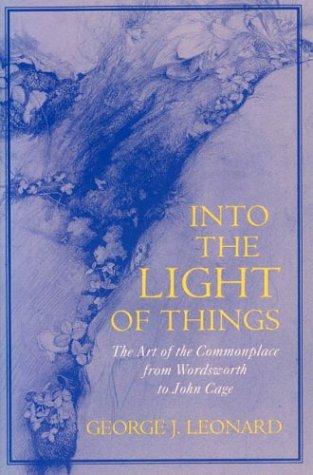After reading "Song of Myself" in its entirety, this section really stood out to me. Upon rereading it a few times it was these two lines that seemed to sum up the ideas that made the page so significant to me. What Whitman is saying within these lines is that his understanding of who God is and God's place in life is everything and nothing at the same time; God is so significant that he sees him in "each hour of the twenty-four", in the faces of all the people around him, and in every occurrence of each day. However, in seeing God in everything, no matter how significant, he becomes ordinary and thus insignificant to some degree. The point that Whitman is making is that in many ways, putting so much importance and meaning in the symbol of God, like many other things, takes away from the ideas that God represents. In other words, to focus on the iconic symbol of God is irrelevant and instead Whitman is asking the reader to delve deeper and find curiosity in the mankind that is represented through such a symbol. I also thought that this idea had a lot of relevance to the poem as a whole. Whitman reiterates throughout the poem the need to feel and touch, to "unscrew the locks from the doors! Unscrew the doors themselves from their jambs!", and to be "...the caresser of life wherever moving..." He is telling the reader to let go and allow oneself to breath in life so that you can find "A morning glory at my window satisfies me more than the metaphysics of books." What I took from all of this was the contentment that can be achieved in finding beauty and significance in the ordinary experience of life instead of looking for it in things that are unattainable. Whitman's focus on being engaged in the sensual experience of life reminds me a lot of a book entitled Into the Light of Things which also happens to be written by George Leonard, a humanities professor at SFSU.
"We open our eyes and ears seeing life each day as excellent as it is. This realization no longer needs art." -John Cage

I love this post and the Cage quote at the end (and would venture to say that the process of attaining that realization is itself a form of art!).
ReplyDeleteThe only thing I would add to your interpretation of the main quote from "Song of Myself" is that I think Whitman is consciously drawing a line between the experience of God and the understanding of God. Here he is teasing apart sensory/bodily knowledge from cognitive knowledge in order to show that God is only "knowable"through our feelings and ourselves and not through the realm of logic and rational thought that society holds so dear. In this way, it almost becomes a claim that feelings are holier than logic! How cool :)
I like it. I like your analysis and get from it the whole of Whitman's defiance of the symbol of god. Whitman constantly rebels against trying to understand things but instead seems to just accept them or touch and feel them. He is sensual in a most profound way. I particularly like the morning glory vs. metaphysics of books part because he is defying philosophy. Whitman's words don't often come from his tongue or mind but are "the belched words of [his] voice". Like many things this quote shows how important the core reality of things are to Whitman.
ReplyDeleteI really appreciate the way that you identify Whitman's deconstruction of the use of symbols. I agree that we often put too much stock into symbols and what they mean rather than simply appreciating the symbol itself. Your analysis reminds me of a few of my peers who consider themselves to be five-percenters. They insist on referring to each other as "God." They do this as a part of their faith and believe that the Black man is God. While I do not interpret their ideology literally, I do believe that there is a god-like qualities that we all possess. As a result, the god-like qualities that we all possess enables us all to identify with people, ideologies and points of view that may be foreign, but are connected through the sensuality of spirituality.
ReplyDeleteGod is ordinary; god is divine? That paradoxical equation seems to me to sum up what W is after - - but unpacking it is going to take a lot of work. E.g. if god is ordinary - - what does that say about our notions of "god"? Do we really need the divine? Or do we just need to rethink it without losing it?
ReplyDelete